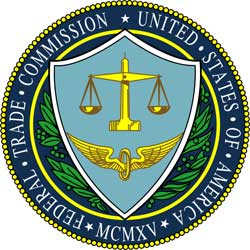FTC: Lying About Notebook Inventory Violates Federal Law

In the past week, we've reported about Office Depot sales associates who are so desperate to maintain their sales ratios that they'll lie to customers who don't want an extended warranty on a notebook and say it's out of stock. We've also published reports from an Office Depot employee, who told us that associates at stores in his area alter the prices of clearance notebooks to include the cost of a "free" warranty or tech service in the sale. We knew that both practices were bad business, but after speaking with a senior official from the Federal Trade Commission, we can confirm that they also violate federal law. "When you're selling a product, it's illegal to lie," said Lois C. Greisman, associate director of the FTC's Division of Marketing Practices. "It's illegal to make false claims about a product, such as 'It's out of stock' when it's not or that a clearance product has a certain markup. You can't lie when you're selling a product." Greisman pointed us to section 2A on this page from the FTC's Office of the General Counsel that outlines the FTC's authority, under the FTC Act, to protect consumers from deceptive practices. "The federal law says you cannot make deceptive statements," Greisman said. "If somebody says a product is out of stock when it's in stock, and they lied because they want to induce you to purchase a bunch of add-ons that you don't want, there may be cause of action under federal law." Greisman also said that, even if a large retail chain has an official corporate policy which bans a sales practice, it can still be held responsible for employees who violate the written policy. "Management is responsible and a corporate entity is responsible. If a company were under order and if it were to violate that order, it could be held in contempt," she said. "Our experience is that a company that wants to adequately police its stores is able to do so." Greisman told us that consumers who believe they have been deceived should complain to the store's customer service bureau and alert the following agencies:
- The FTC : If you have been deceived by a sales associate or you are a sales associate that has witnessed such deception, Greisman recommends you file a report using the FTC Complaint Assistant. The FTC does not address individual consumer complaints, but your report will help identify patterns of wrongdoing that could lead to broader legal action.
- State or Local Attorney Generals: States routinely file consumer-protection litigation on behalf of their residents, and no doubt your state's head law enforcement official may be very interested to hear about your experiences. Each state has its own procedures. For example, New York's Attorney General lists its complaint forms and contact information on this Web site.
- Better Business Bureau: The Better Business Bureau, though not a government agency, is empowered to resolve disputes between retailers and their customers. You can start by filling out the National BBB's complaint form.
Stay in the know with Laptop Mag
Get our in-depth reviews, helpful tips, great deals, and the biggest news stories delivered to your inbox.
